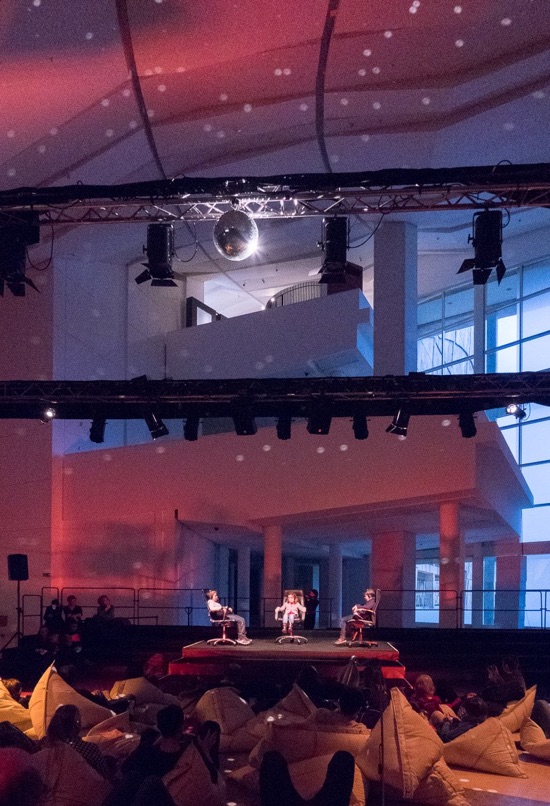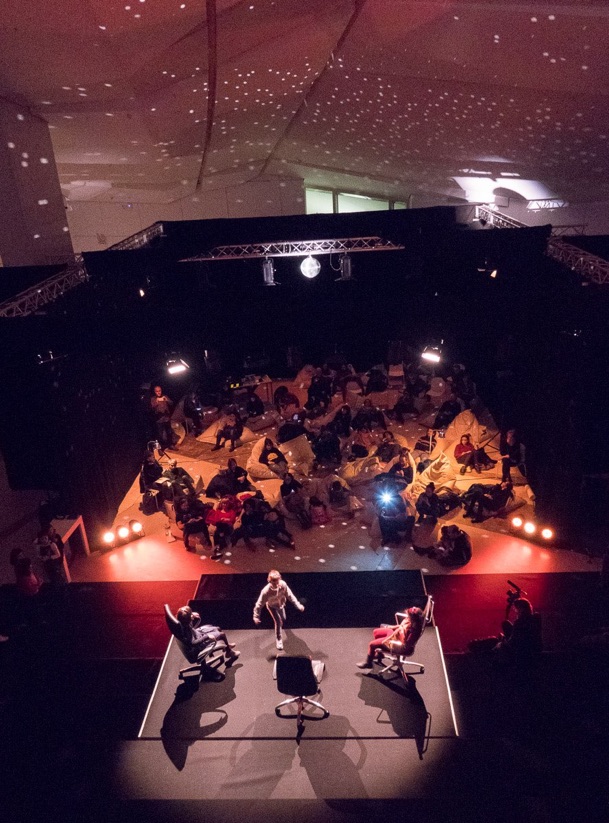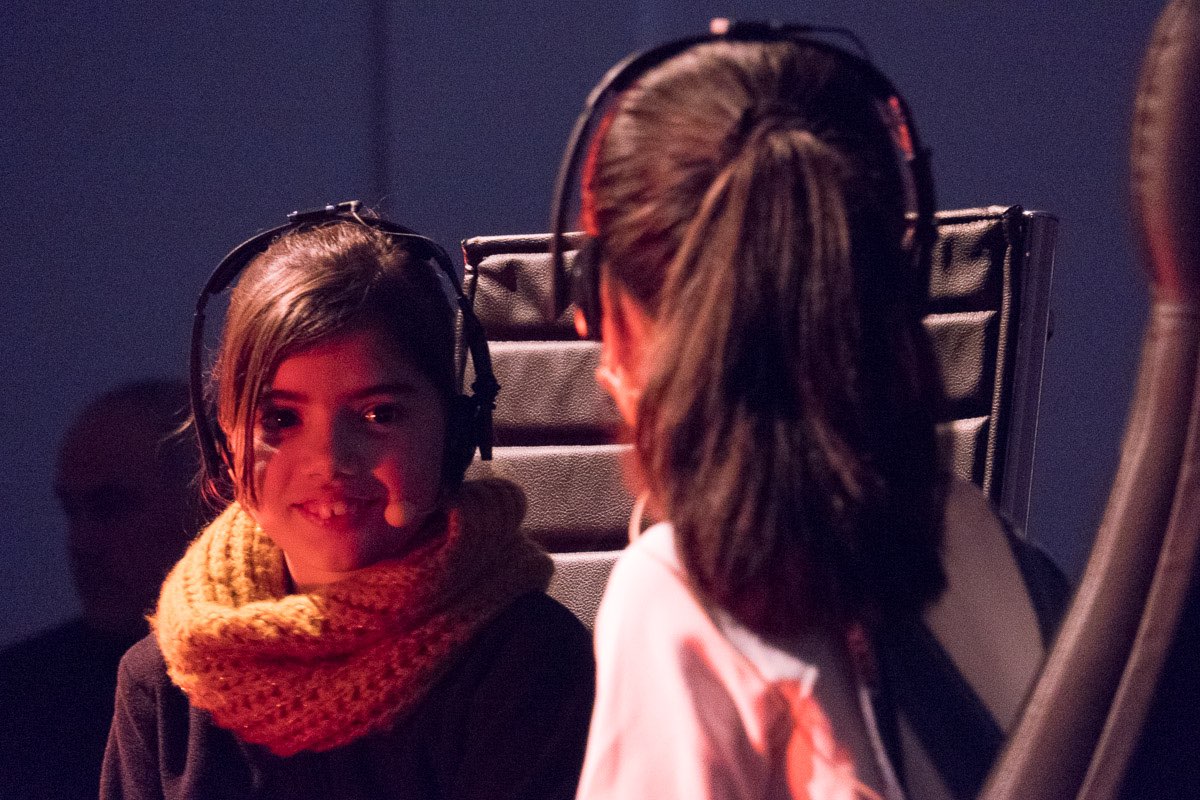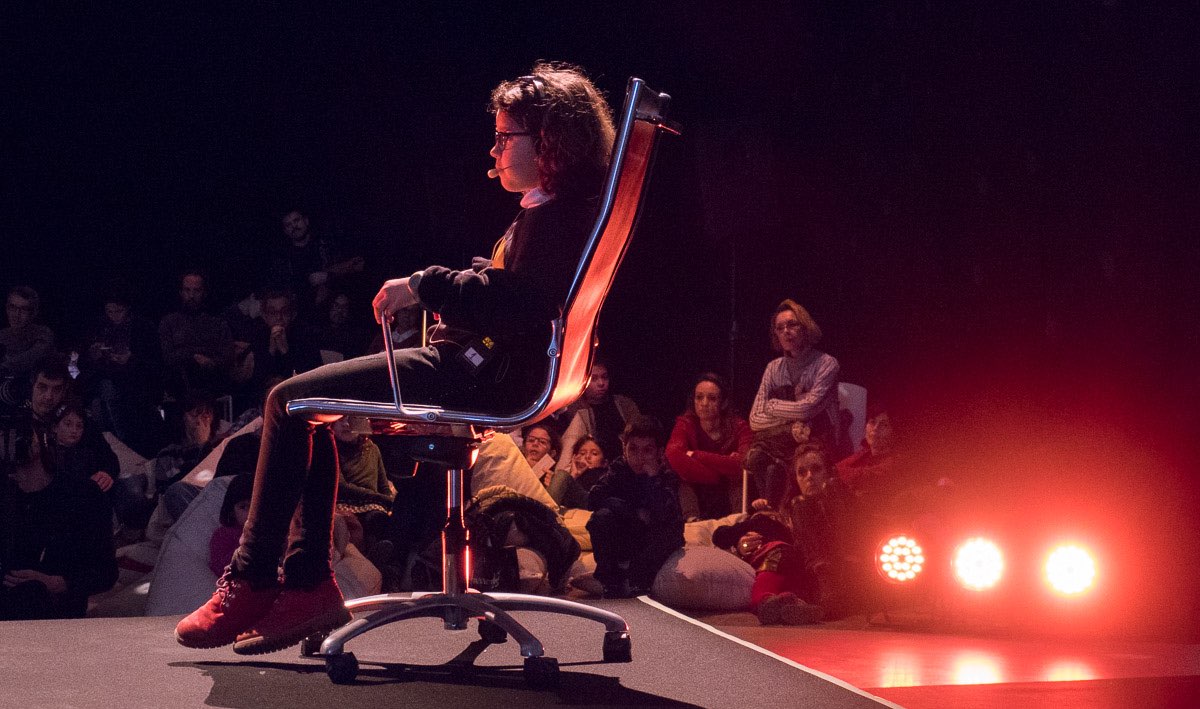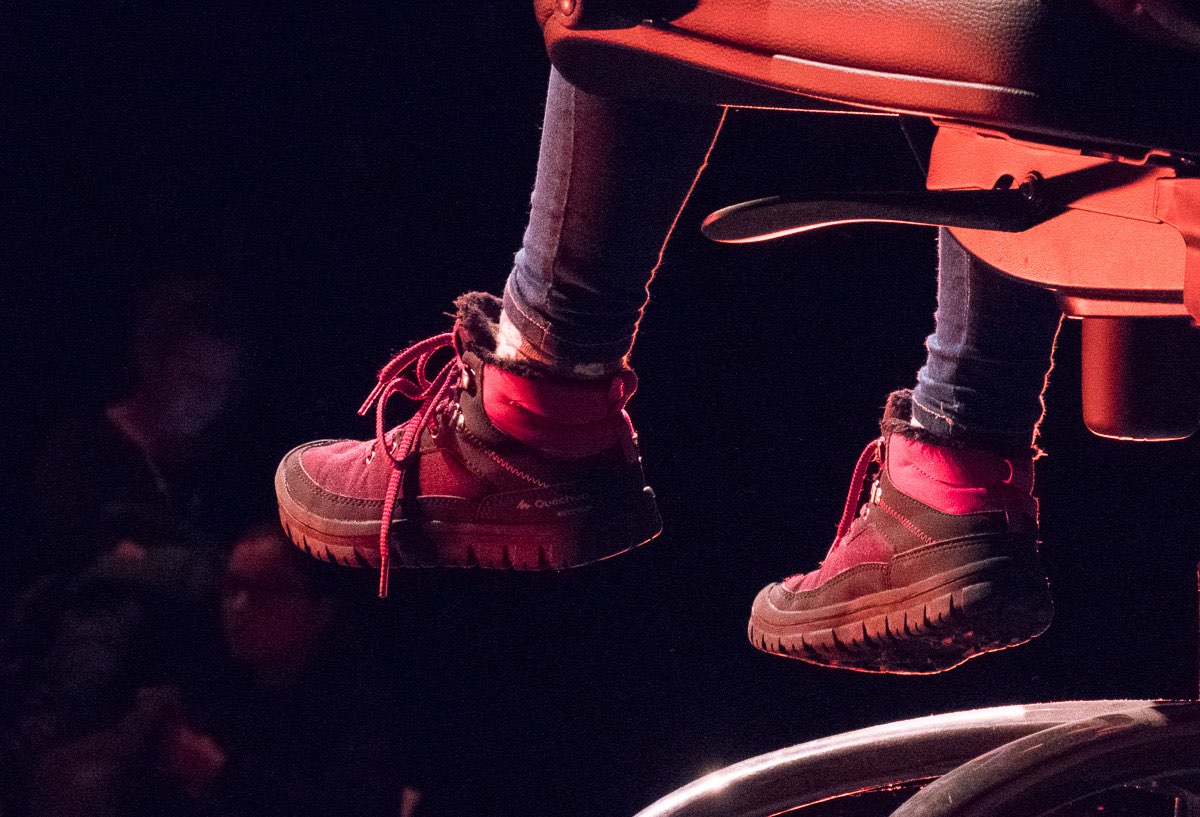From the outside, the reality of the situation is transparent: children agreeing ‘to say whatever they're told to say'. Information being funneled into their ears, through their brains, and out of their mouths. If, despite the fun, this seems problematic, the provocation is consistent with the wider aim of the work: to face up to an inevitable challenge... For many adults it’s hard to imagine a child growing up and absorbing this kind of information. Bringing a child into the world is perhaps the easy part. More difficult is how to bring the world into a child.
In the US, in 2015, more people were shot by toddlers than by Islamic terrorists.
You can't kill yourself by holding your breath.
Butterflies taste with their feet.
